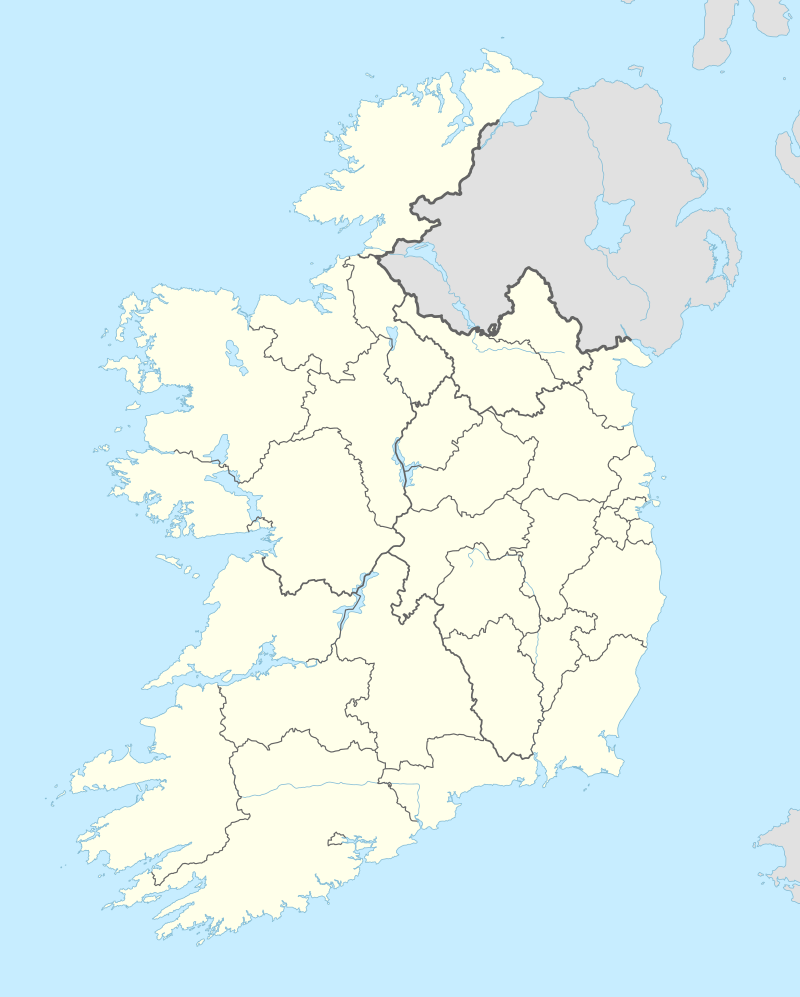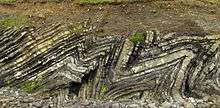Loughshinny
Loughshinny (/lɒxˈʃɪni/ lokh-SHIN-i; Irish: Loch Sionnaigh)[2] is a small coastal village in northern County Dublin, Ireland, between Skerries and Rush. Loughshinny's more famous landmarks are the Martello Tower on the nearby headland of Drumanagh and some unusual rock formations visible on some of the many coastal walks in the area. The village is located in the townland of the same name which is part of the civil parish of Lusk.[3]
Loughshinny Loch Sionnaigh | |
|---|---|
Town | |
 Loughshinny Harbour with headland of Drumanagh on right | |
 Loughshinny Location in Ireland | |
| Coordinates: 53°32′49″N 6°5′10″W | |
| Country | Ireland |
| Province | Leinster |
| County | Dublin |
| Population (2010)[1] | |
| • Urban | 641 |
| • Rural | 1,046 |
| Time zone | UTC+0 (WET) |
| • Summer (DST) | UTC-1 (IST (WEST)) |
| Website | www |
History

The headland of Drumanagh contains a major Iron Age fort, where important Roman artifacts have been found. Some archaeologists have suggested the fort was a bridgehead for Roman military campaigns, while others suggest it was a Roman trading colony or a native Irish settlement that traded with Roman Britain.[4][5]
Famous people associated with Loughshinny include Richard A. Butler, who was a member of the first Seanad and chair of the Irish Farmers' Union.
Loughshinny Beach
Loughshinny Beach is a picnic area used by locals and others. Its facilities include public toilets (summer only), a lifeguard hut (summer only), and a public carpark (year round).
In April 2016, Loughshinny Beach was classified as having a "poor status" of water quality, along with Rush South Beach, by Fingal County Council. This statement was issued during one of Fingal County Council's largest pushes for tourism throughout the Fingal region and in Loughshinny.[6] Also in 2016, Loughshinny Beach was one of six Irish beaches that failed to meet minimum EU standards for clean water.[7] Rush South Beach similarly failed to meet these EU regulations. Tourism has suffered in these regions as a result, but the so-called "Folding Cliffs of Loughshinny" and the Smugglers' Cave along the beach nearby Loughshinny still provide an attraction for tourists.
References
- "Ireland Census 2006 - Population of Towns ordered by County and size, 2002 and 2006" (PDF).
- Placenames Database of Ireland
- Placenames Database of Ireland -Loughshinny townland
- Richard Warner, "Yes, the Romans did invade Ireland", British Archaeology 14, May 1996, retrieved 14 August 2009
- Shawn Pogatchnik, "Experts Claim Romans May Have Established Colonies in Ireland", Los Angeles Times, 17 November 1996, retrieved 22 July 2009
- http://www.northcountyleader.ie/2016/04/12/beaches-must-be-prioritised/
- http://www.joe.ie/news/six-of-irelands-beaches-have-failed-to-meet-minimum-eu-standards-for-clean-water/537966